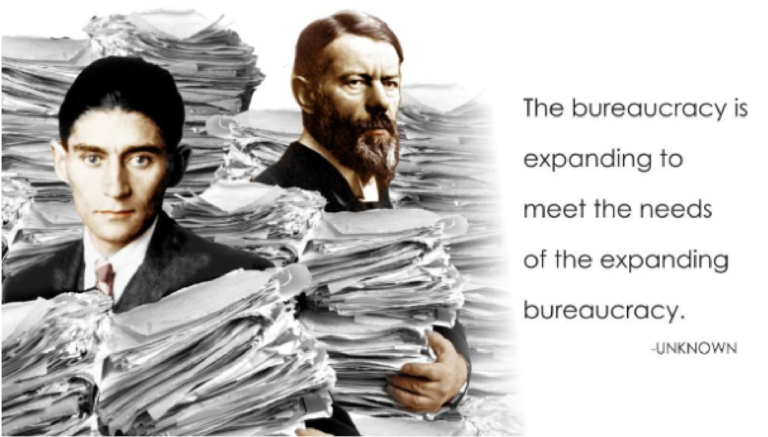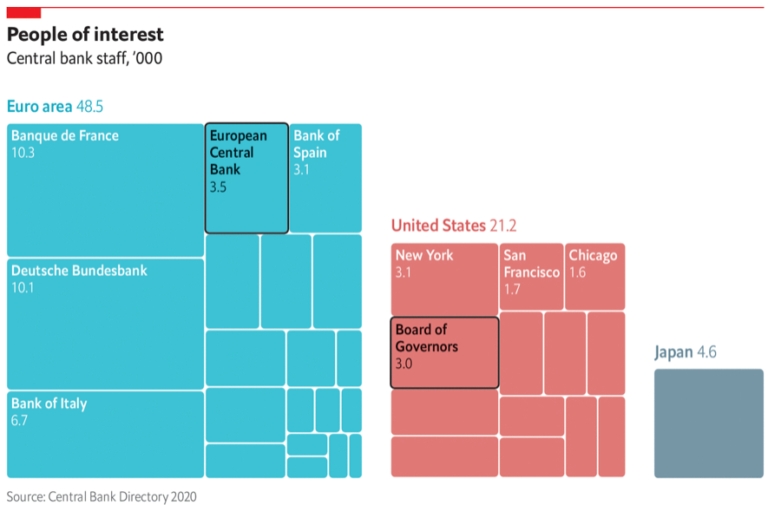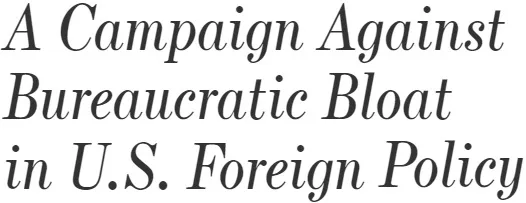

I’m not a big fan of bureaucracy, mostly because government employees are overpaid and they often work for departments and agencies that shouldn’t exist.
Today, motivated by “public choice” insights about self-interested behavior, I want to make an important point about how bureaucracies operate.
We’ll review two articles about completely disconnected issues. But they both make the same point about ever-expanding bureaucracy.
First, the Economist has an article about central banks, specifically looking at how they employ thousands of bureaucrats. What makes the numbers so remarkable, at least in most of Europe, is that they no longer have currencies to manage.

I actually wrote about this issue back in 2009 and mentioned the still-relevant caveat that some central banks have roles beyond monetary policy, such as bank supervision.
That being said, this chart suggests that there’s plenty of fat to cut.

What I would like to see is a comparison of staffing levels for countries that use the euro, both before and after they outsourced monetary policy the European Central Bank.
I would be shocked if there was a decline in the number of bureaucrats, even though monetary policy presumably is the primary reason central banks exist.
By the way, there’s a sentence in the article that cries out for correction.
It would be far more accurate if the sentence was modified to read: “…have become more of a threat to macroeconomic stability since the global financial crisis that they helped to create.”
But I’m digressing.
Let’s now look at the next article about bureaucracy.
John Lehman, a former Secretary of the Navy, recently opined in the Wall Street Journal about bureaucratic bloat at the National Security Council.

Wow.
A bureaucracy that didn’t exist until 1947 and didn’t even have a boss until 1953 then grows to almost 100 people about 20 years later.
And then 1700 bureaucrats by the Obama Administration.
Needless to say, I’m sure that the growth of the NSC bureaucracy wasn’t accompanied by staffing reductions at the Department of State, Department of Defense, or any other related box on the ever-expanding federal flowchart.
Whenever I read stories like the two cited above, I can’t help but remember what Mark Steyn wrote almost ten years ago.

As always, Steyn is very clever. But there’s a very serious underlying point. Is there any evidence that additional bureaucracy has produced better decision making?
Either in the field of central banking, national security, or in any other area where more and more bureaucrats exercise more and more control over our lives?
Maybe there is such evidence, but I haven’t seen it. Instead, I see research showing how bureaucracy stifles growth, creates waste, promotes inefficiency, crowds out private jobs, delivers bad outcomes, acts in a self-serving fashion, and bankrupts governments.